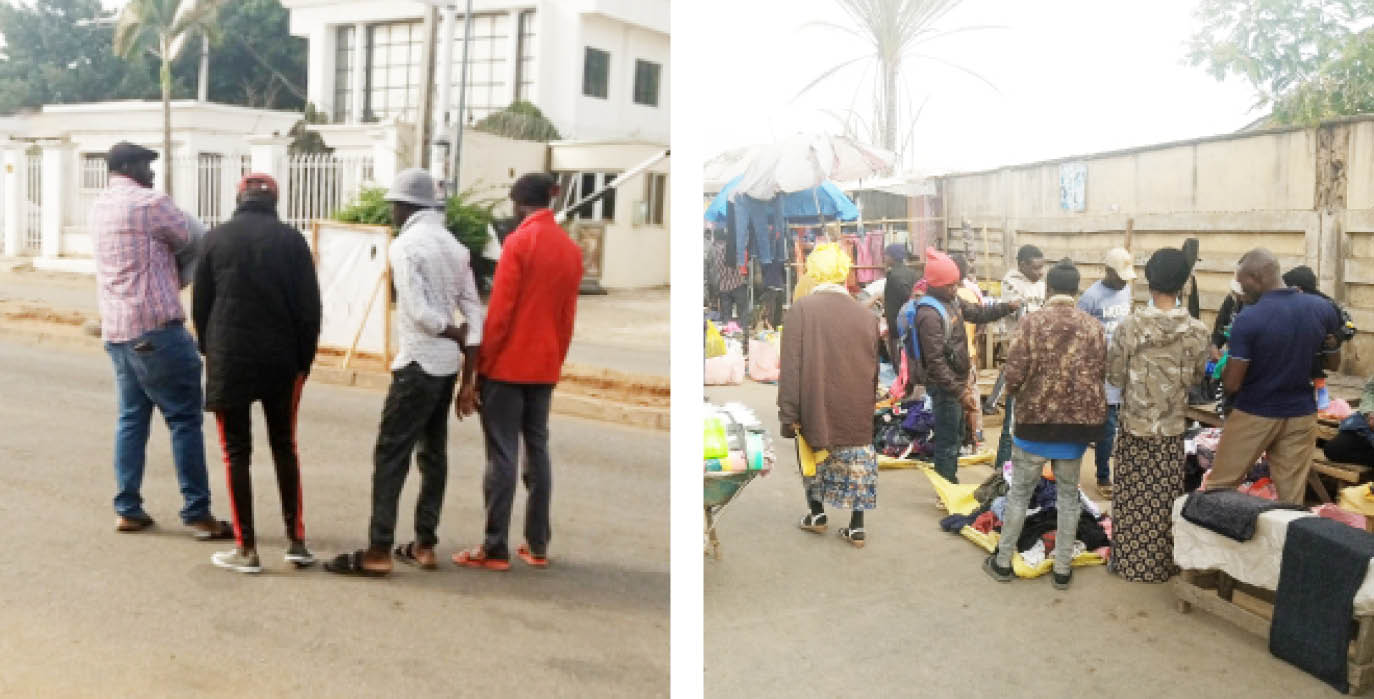The cold weather in Jos, the Plateau State capital, has broken out with great intensity, and along with the harmattan, it is causing different feverish conditions and other illnesses and impacts.
Jos is known to be among the coldest places in the country and between December and January, the cold intensifies and people take all kinds of preventive measures to keep warm and healthy.
Since the beginning of December, the climate in Jos has been alternating from 20 to 25 degrees Celsius and by early January, the weather in the Tin City could drop below 20 degrees Celsius, which sometimes equates to what obtains in other colder countries around the world.
On the streets of Jos, the common sight now is that of people moving about dressed in thick clothes/jackets/sweaters, hand gloves, caps and mufflers among other body coverings to keep out the cold.
In offices or at home, people heat water to drink, wash hands with warm water and take a bath with hot water, while others stay for days without taking their bath either due to lack of means to warm their bathwater or because they can’t even cope with water touching their body at such times, no matter the temperature of the water.
More worrisome, however, is that this year’s cold is coming amid the increasing disruption of the COVID-19 pandemic – now throwing up a new deadlier variant, Omicron.
The worry is that the COVID-19 virus flourishes more in a cold environment than under a hot atmosphere.
Our correspondent spoke with some residents of Jos and a medical expert to hear their take on the situation.
A teacher, Chinyere Ujah, said anyone who did not believe that the cold has severely broken out in Jos is deceiving his or herself, advising that those going about with skimpy clothes, particularly women revealing their bodies in the name of trying to look attractive, should be careful lest they catch cold-related ailments.
She said with the level of cold, contagious diseases are easy to contract, adding that flu-related diseases would be rampant. She said anyone that wants to escape the COVID-19 virus should take the cold seriously, cover themselves accordingly while observing all mother protocols.
Ujah said the cold at night causes people to feel as if water had been poured on their beds and blankets because they would be very cold. She added that the wind would be blowing, shaking doors and windows and even rafters violently as if there was a carpenter at work.
She called on mothers to kit their kids well because they are vulnerable and cannot kit themselves on their own, to protect them from catching cold-related illnesses.
She cautioned people against drinking cold water, minerals or any drink directly from the fridge at this time, adding that they should instead drink warm water if they cannot afford tea or coffee.
On his part, Alfred, a clothes/sweater seller at Rantiya/Low Cost junction said the dust that comes with the cold is what is often responsible for the runny nose, dust particles in the eyes and cough, among others.
He advised that apart from wearing thick clothes, people should always wear winter caps or anything that would cover their heads properly. He also urged people to use their nose masks at all times to check the dust or wind from getting into their noses or mouths.
A corps member from Borno State, Emmanuel Mada, said he is not used to such cold, and that he had to cover himself with a blanket, despite the sweater, before he could sleep.
Mada said he is already learning the preventive measures against the Jos cold and hoped he would adapt properly with time.
Mathias Derwan, who came in from Abuja on a business trip, said he could hardly step out of the home in the morning until the afternoon so that he would not catch a cold because he was not used to it.
And even when stepping out in the afternoon, he still needed to wear a jacket, yet he would still be shivering.
He however said some people appear to be used to the cold as he saw them moving around in light clothes. He warned though that no matter how much one is used to the cold, it is important to properly cover oneself, especially with the COVID-19 and the new variant, Omicron, said to thrive in such weather.
Reacting, a medical doctor at Katameya First Call Hospital in Jos, Dr Hayatu Ibrahim, said with the change in the weather, there is the possibility of rising cases of flu, and by extension COVID-19, and probably the Omicron variant.
He reiterated the need for strict compliance with COVID-19 protocols of social distancing, regular washing of hands and the use of hand sanitiser, wearing of face masks, and avoiding indiscriminate touching of surfaces, among others.
Dr Ibrahim said they have taken time to enlighten people on all the preventive measures, adding that they ensured that any patient who came to their facility with acute respiratory problem is tested for COVID-19, as well as the omicron variant.
He advised people to go for testing whenever they feel strange happenings in their bodies or any symptom related to the virus.
He equally advised people to take the COVID-19 vaccine, saying they should not be apprehensive or doubtful about it, due to the rumour being peddled about it.
Meanwhile, Plateau State Governor Simon Lalong has inaugurated a special task force to enforce mass COVID-19 vaccination of citizens of the state. It is called Task Force on Integrated and Mass Vaccination.
Inaugurating the task force at the government house after which he also took his booster jab, the governor directed local government chairmen to replicate the task force in their various council areas.
Upon rolling out conditions for the compulsory vaccination, Lalong appealed to the citizens of the state to embrace vaccination against COVID-19 and other diseases to ensure that the healthcare of the state is fortified against preventable diseases.
He said the inauguration of the task force became necessary to ensure that there is consistent and coordinated vaccination in the state against COVID-19 and other diseases.
“The task force which we are inaugurating today has a membership that consists of health professionals and eminent stakeholders from across the state with the mandate to create the desired attention required for prompt sensitization and consolidation of achieved gains in the area of vaccination.
“I am mandating all local government chairmen to oversee their respective LGA task forces for successful immunization to deliver effective rural health care services to the people,” he said.
Lalong also announced that the state government vaccine mandate is that all citizens of 18 years and above will henceforth show evidence of vaccination or present a negative COVID-19 PCR test result done within 72 hours to gain access to any public office.
This will also go hand in hand with observing all protocols in schools, markets, banks, weddings, churches, mosques, among others, he said.
These measures, according to him, are not punitive nor intended to force people to take the vaccines against their wish. They are simply meant to ensure public safety and guarantee the health of the people against the pandemic.
In his remarks, the Commissioner for Health, Dr Nimkong Lar, said the vaccines are not harmful contrary to conspiracy theories, reiterating that no one will be forced to take them.
He emphasised that the ministry was also concerned about other diseases aside COVID-19 which need more sensitization for vaccination.
The Long Gamai, Miskoom Martins Shaldas, chairman of JNI, chairman of CAN, and other stakeholders assured that they would do their best to sensitise the people and mobilise them to cooperate with the government towards achieving the desired goals.
The Unicef representative in the state, Dr Wazingi Williams, presented the global, national and state outlook of the pandemic and its management, urging citizens to make themselves available for the vaccine which is a major way of containing the virus that is still being studied.
Health officials were also at hand to administer the vaccines to those who were taking it for the first time and those for the second or booster jabs.
Responding on behalf of the task force, the Deputy Governor, Prof. Sonni Tyoden, assured that the members would put in their best to ensure that the state achieved its objectives.

 Join Daily Trust WhatsApp Community For Quick Access To News and Happenings Around You.
Join Daily Trust WhatsApp Community For Quick Access To News and Happenings Around You.


